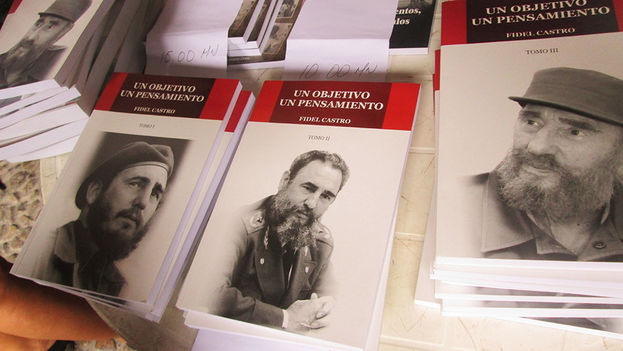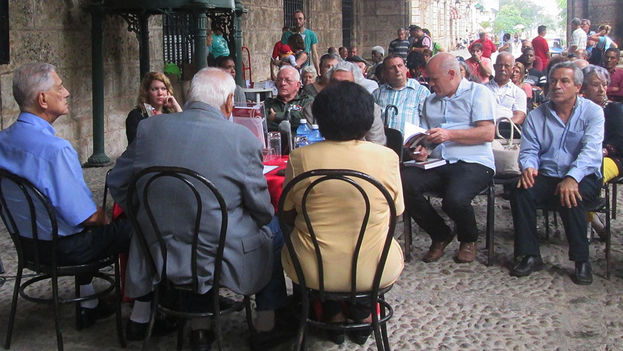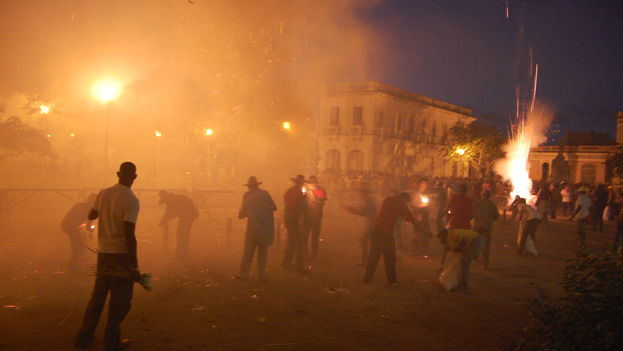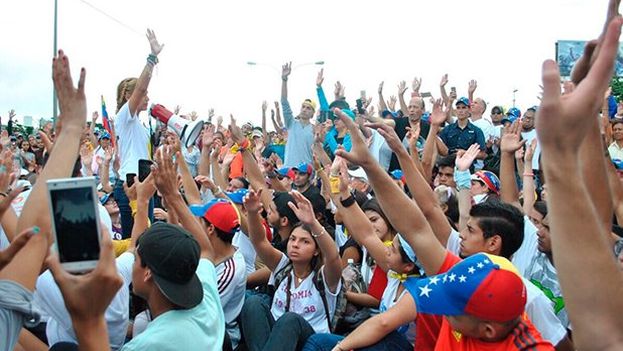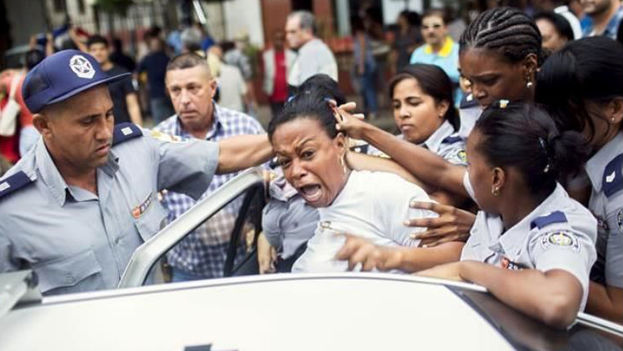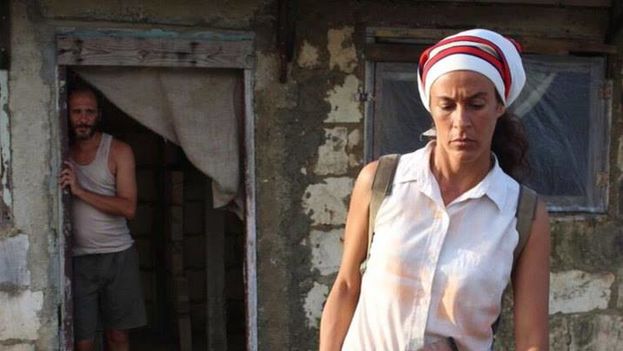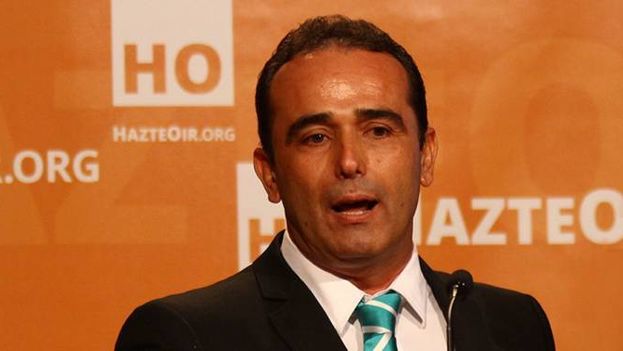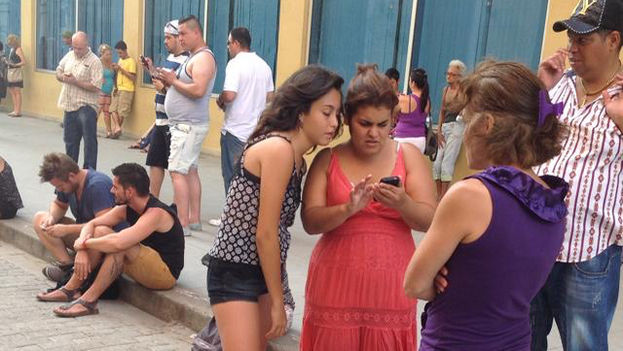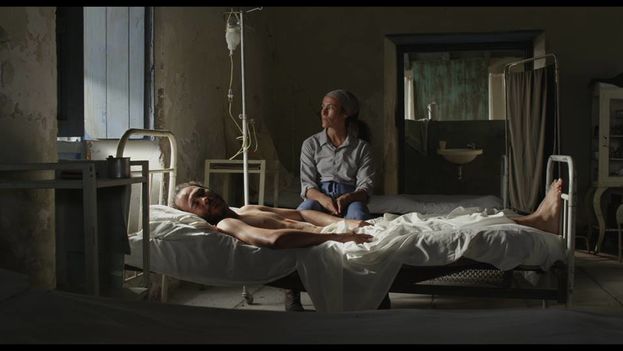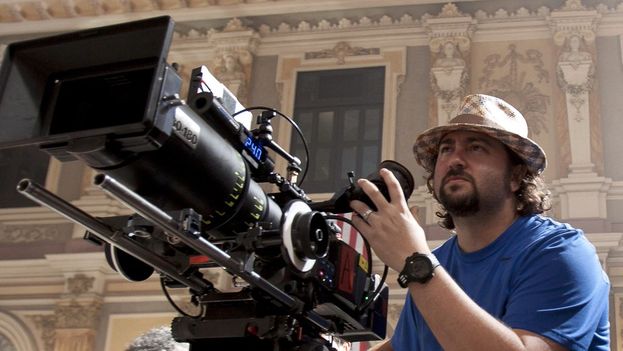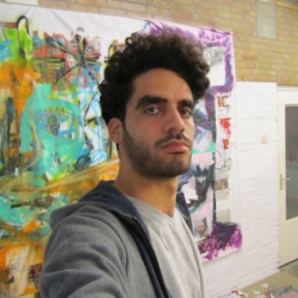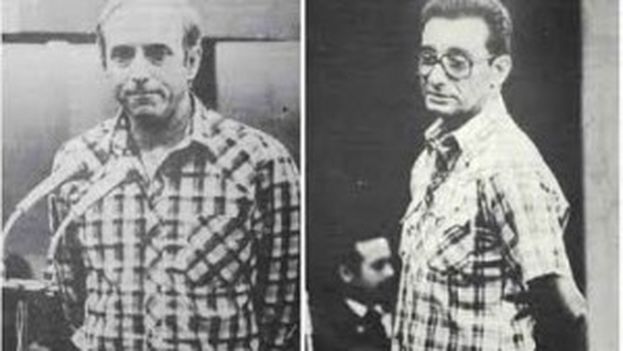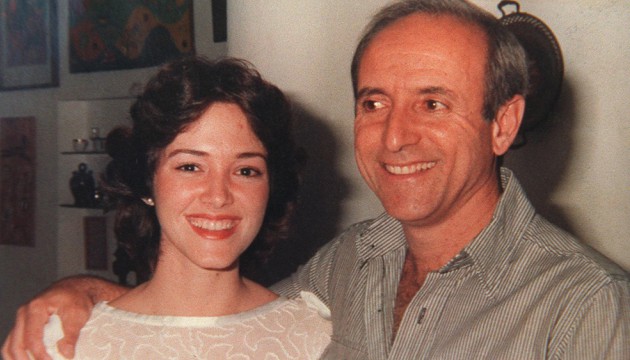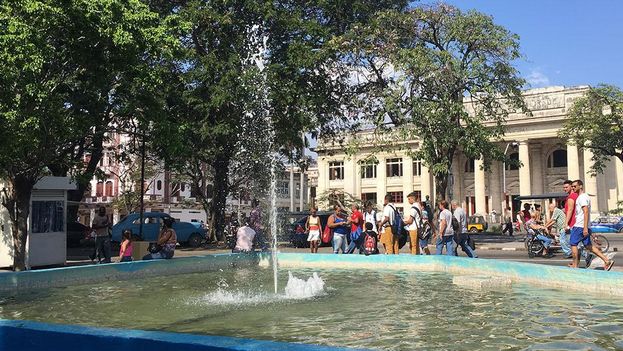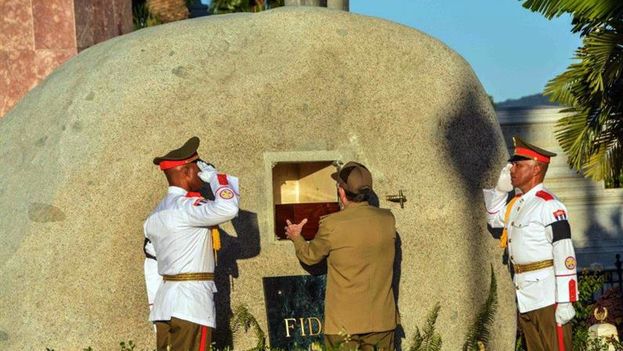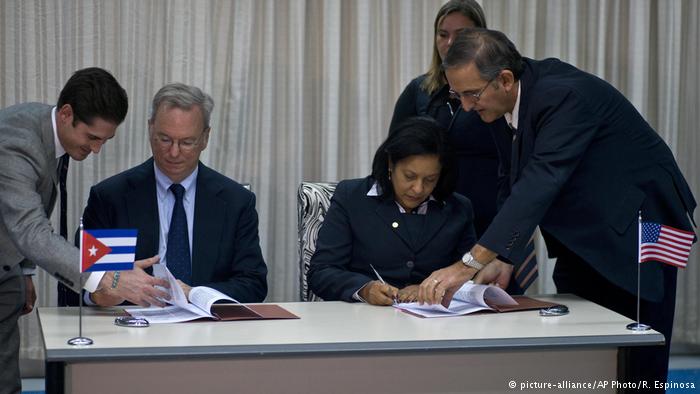
![]() 14ymedio, Zunilda Mata, Havana, 13 December 2016 – The news made the headlines and generated a wave of enthusiasm. The agreement signed this Monday between the US information giant Google and the Telecommunications Company of Cuba (ETECSA) will improve the experience of Cuban websurfers, but will not, in the short term, affect the number of people who can access the internet from the island.
14ymedio, Zunilda Mata, Havana, 13 December 2016 – The news made the headlines and generated a wave of enthusiasm. The agreement signed this Monday between the US information giant Google and the Telecommunications Company of Cuba (ETECSA) will improve the experience of Cuban websurfers, but will not, in the short term, affect the number of people who can access the internet from the island.
Google has taken a historic step to overcome official suspicion in the telecommunications sector. Google will install servers in Cuba that will increase the speed and quality of web connections, an improvement which will enable better access to services such as Gmail, YouTube and Google Drive.
However, accelerating, in this case, does not mean expand. The agreement signed by the chief executive of the Cuban state monopoly, Mayra Arevich, and Google CEO Eric Schmidt will only benefit those who already are connecting to the web from the island. continue reading
Cuba is at the forefront of the list of countries with the least internet penetration in the Western hemisphere. An hour of navigation from a state-provided wifi zone costs the equivalent of two days pay for a professional, and is plagued by crashes, service faults, and hackers who wirelessly steal the balance on your internet card, as well as being subject to the physical theft of phones, laptops and tablets by thieves who haunt the wifi zones for this purpose.
“This agreement allows ETECSA to use our technology to reduce latency to locally deliver some of our most popular content and a higher bandwidth, for example YouTube videos,” Google said in a statement.
Once stored on servers within Cuba, that content will reach internet users up to 10 times faster, according to expert predictions. But the agreement does not affect the customers’ bandwidth or allow access to sites that the government of Raul Castro keeps under strict censorship.
Google has been exploring service on the island since 2014, when Schmidt visited Cuba along with other executives and interviewed journalists with 14ymedio, students at the University of Information Sciences in Havana, and Cuban officials. Shortly after that trip, the company opened its products to Cuban users on the island – who previously could not access them – including products such as Google Chrome, Google Play and Google Analytics.
The news of the agreement with the US company spread by word of mouth among Cubans and was presented in the official media as an achievement by the government “to improve the computerization of Cuban society,” but few spoke about the details.
“I hope that now the ability to surf the internet from cellphones is closer,” said Vosvel Camejo, a customer of the only telephone company allowed in the country, and for whom Google is the only entity that can save the country “from underdevelopment.”
The signing of the agreement comes a few weeks from Republican Donald Trump’s inauguration as president of the United States, on 20 January 2017. President-elect Trump has been inconsistent in his position on the process of normalization of relations with the island, moved forward by his predecessor, Barack Obama. Google has rushed to sign the agreement, given the uncertainty presented by the tycoon’s arrival in the White House.
For the Government of Havana, the clock is ticking off certain emergencies in telecommunications. In February 2011, a fiber optic cable connecting the island to Venezuela reached land on Siboney Beach in eastern Cuba. This cable carries the major flow of data entering and leaving Cuba.
Access from home is only allowed for a very small group of officials, professionals with links to officialdom, and foreign residents of the island. “The ideal would be for this agreement to also bring internet to Cuban homes, so that the country can develop all the talent of its people,” says Camejo.
For now, the company, based in California, has committed to improve the browsing experience, a step that can be very important for the development of the independent sector that produces audiovisuals, and for the “YouTubers” who have begun to emerge in the country.
Independent organizations such as the Patriotic Union of Cuba (UNPACU) frequently use video services to publish reports, interviews and images of repression in the east. With the new agreement, their presence and effectiveness on the web can grow significantly.

